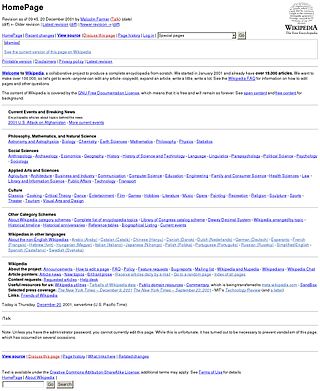
Wikipedia, a free-content online encyclopedia written and maintained by a community of volunteers known as Wikipedians, began with its first edit on 15 January 2001, two days after the domain was registered. It grew out of Nupedia, a more structured free encyclopedia, as a way to allow easier and faster drafting of articles and translations.

A wiki is a form of hypertext publication on the internet which is collaboratively edited and managed by its audience directly through a web browser. A typical wiki contains multiple pages that can either be edited by the public or limited to use within an organization for maintaining its internal knowledge base.

Enciclopedia Libre Universal en Español is a Spanish-language wiki-based online encyclopedia, released under the Creative Commons Attribution-ShareAlike License 3.0. It uses the MediaWiki software. It started as a fork of the Spanish Wikipedia.

MediaWiki is free and open-source wiki software originally developed by Magnus Manske for use on Wikipedia on January 25, 2002, and further improved by Lee Daniel Crocker, after which development has been coordinated by the Wikimedia Foundation. It powers several wiki hosting websites across the Internet, as well as most websites hosted by the Wikimedia Foundation including Wikipedia, Wiktionary, Wikimedia Commons, Wikiquote, Meta-Wiki and Wikidata, which define a large part of the set requirements for the software. MediaWiki is written in the PHP programming language and stores all text content into a database. The software is optimized to efficiently handle large projects, which can have terabytes of content and hundreds of thousands of views per second. Because Wikipedia is one of the world's largest and most visited websites, achieving scalability through multiple layers of caching and database replication has been a major concern for developers. Another major aspect of MediaWiki is its internationalization; its interface is available in more than 400 languages. The software has more than 1,000 configuration settings and more than 1,800 extensions available for enabling various features to be added or changed. Besides its usage on Wikimedia sites, MediaWiki has been used as a knowledge management and content management system on websites such as Fandom, wikiHow and major internal installations like Intellipedia and Diplopedia.
Open-source journalism, a close cousin to citizen journalism or participatory journalism, is a term coined in the title of a 1999 article by Andrew Leonard of Salon.com. Although the term was not actually used in the body text of Leonard's article, the headline encapsulated a collaboration between users of the internet technology blog Slashdot and a writer for Jane's Intelligence Review. The writer, Johan J. Ingles-le Nobel, had solicited feedback on a story about cyberterrorism from Slashdot readers, and then re-wrote his story based on that feedback and compensated the Slashdot writers whose information and words he used.

BugMeNot is an Internet service that provides usernames and passwords allowing Internet users to bypass mandatory free registration on websites. It was started in August 2003 by an anonymous person, later revealed to be Guy King, and allowed Internet users to access websites that have registration walls with the requirement of compulsory registration. This came in response to the increasing number of websites that request such registration, which many Internet users find to be an annoyance and a potential source of email spam.

The German Wikipedia is the German-language edition of Wikipedia, a free and publicly editable online encyclopedia.

The Portuguese Wikipedia is the Portuguese-language edition of Wikipedia, the free encyclopedia. It was started on 11 May 2001.

Lars Erik Aronsson is a Swedish programmer and consultant, and the founder of two Swedish web sites: the free electronic book archive Project Runeberg and the Swedish language wiki Susning.nu.
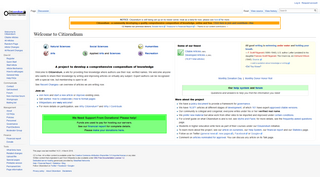
Citizendium is an English-language wiki-based free online encyclopedia launched by Larry Sanger, co-founder of Nupedia and Wikipedia.
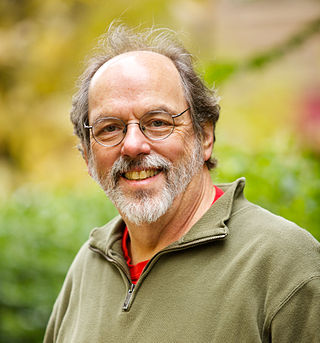
The history of wikis began in 1994, when Ward Cunningham gave the name "WikiWikiWeb" to the knowledge base, which ran on his company's website at c2.com, and the wiki software that powered it. The wiki went public in March 1995, the date used in anniversary celebrations of the wiki's origins. c2.com is thus the first true wiki, or a website with pages and links that can be easily edited via the browser, with a reliable version history for each page. He chose "WikiWikiWeb" as the name based on his memories of the "Wiki Wiki Shuttle" at Honolulu International Airport, and because "wiki" is the Hawaiian word for "quick".

The Swedish Wikipedia is the Swedish-language edition of Wikipedia, started in 2001. A free content online encyclopedia, it is the largest reference work in Swedish history, while consistently ranked as the most visited, or one of the most visited Swedish language websites.

WikiTrust was a software product, available as a Firefox Plugin, which aimed to assist editors in detecting vandalism and dubious edits by highlighting the "untrustworthy" text with a yellow or orange background. As of September 2017, the server is offline, but the code is still available for download.

On Wikipedia, vandalism is editing the project in an intentionally disruptive or malicious manner. Vandalism includes any addition, removal, or modification that is intentionally humorous, nonsensical, a hoax, offensive, libelous or degrading in any way.

The Wikipedia of Ripuarian languages is the Ripuarian edition of Wikipedia. It was started on 6 July 2005, as WiKoelsch on a private server, and was converted to an official Wikipedia during April 2006. As only about a million people speak the Ripuarian languages, the Ripuarian Wikipedia is relatively small. Since both the use of Ripuarian, and the population capable of using a Ripuarian language, are decreasing, it is also an endangered language Wikipedia. The total number of edits on this Wikipedia is 1,608,900.
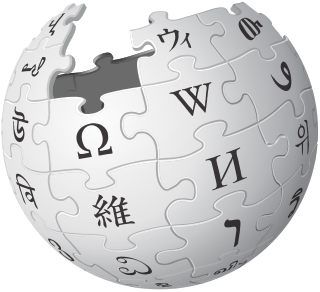
The following outline is provided as an overview of and a topical guide to Wikipedia:

Everipedia is a blockchain-based online encyclopedia. Everipedia was founded in 2014 and was officially launched in 2015, as a fork of Wikipedia. Larry Sanger joined the company in 2017. In 2022, Everipedia was renamed IQ.wiki.
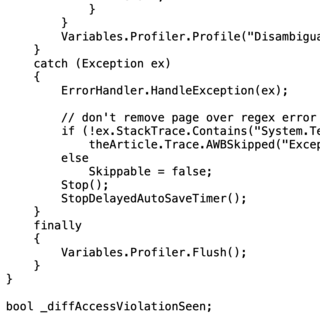
Wikipedia bots are Internet bots that perform simple, repetitive tasks on Wikipedia. One prominent example of an internet bot used in Wikipedia is Lsjbot, which has generated millions of short articles across various language editions of Wikipedia.

Wikipedia's volunteer editor community has the responsibility of fact-checking Wikipedia's content. Their aim is to curb the dissemination of misinformation and disinformation by the website.

















